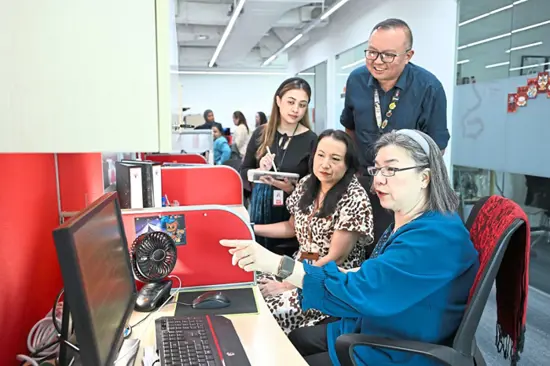August 6, 2025
PETALING JAYA – The extension of the current retirement age from 60 to 65 years old should remain optional and fulfil the needs of the performing industries, say experts.
Prof Dr Balakrishnan Parasuraman from Universiti Malaysia Kelantan said the extension should only be for important sectors, especially performing ones, but a blanket implementation for all is needed.
“If you want to see Malaysia grow fast, you should allow senior citizens to continue working because they can help bring this country to the next level.
“For example, we have only some 3,000 professors, so we should allow those in this field to continue because they are contributing to research and development, and are passing on their skills and knowledge to others.
ALSO READ : Is there a ‘right’ retirement age?
“In the civil service, it should be performance-based because you cannot just get rid of someone in this sector easily. Keep the ones who are really helping to shape and change the nation,” said the human resources and industrial relations expert.
He said countries like Vietnam, France, Denmark, Japan and Australia have all increased their retirement ages, while Malaysia is just getting into the conversation.
Balakrishnan also pointed out that it would be more beneficial to allow senior citizens to fulfil essential roles rather than relying on the younger generation to step up to the challenge.
When tabling the 13th Malaysia Plan at Dewan Rakyat recently, Prime Minister Datuk Seri Anwar Ibrahim said that the mandatory retirement age limit would be reviewed.
Currently, civil servants must retire at the age of 60. This is also the minimum retirement age for private sector workers under the Minimum Retirement Age Act 2012.
National Council of Senior Citizens Organisations Malaysia president Datuk Dr Soon Ting Kueh said that extension of the retirement age should remain optional.
“It makes sense (to extend) because older people have certain experiences that should be preserved and continued; their skills can be passed on to the younger generations.
ALSO READ : Govt to study ‘retirement at 65’ proposal
“Make it an option for folk who want to keep working. For those who want to retire, (the same) should also be allowed,” he said.
He added that wanting to extend the retirement age coincides with better health conditions among Malaysians and the country’s increasing ageing society.
However, Soon pointed out that senior citizens must also keep upskilling and reskilling themselves to suit the current needs of the industries and market.
Meanwhile, Federation of Malaysian Business Associations vice-chairman Nivas Ragavan said Malaysia must carefully design policies that ensure both seniors and youth are empowered in the labour market.
Raising the retirement age, he said, is just one aspect of the solution – it must be integrated with reskilling frameworks, workplace inclusivity and youth employment strategies.
“There is growing hesitation among the youth about joining certain sectors or accepting lower entry-level salaries.
“On the flip side, older workers need to unlearn and relearn rapidly in today’s fast-changing work environment.
“This dual challenge must be addressed through intergenerational workplace policies, flexible employment structures, including part-time or consultative roles for seniors and structured national reskilling programmes specifically tailored for older workers.”
In terms of employer readiness, Nivas says most employers are open to hiring seniors if they are skilled, adaptable and healthy.
But companies may be reluctant to invest in retraining without government incentives or a clear return on investment, he said.
A shared-responsibility model, where both government and employers contribute to reskilling costs, could make this more viable, said Nivas, who is also the Kuala Lumpur and Selangor Indian Chamber of Commerce and Industry president.
On May 20, amid rising workforce concerns, Minister in the Prime Minister’s Department (Law and Institutional Reform) Datuk Seri Azalina Othman Said suggested raising the minimum retirement age from 60 to 65.
Following this, Anwar acknowledged the importance of the proposal to raise the mandatory retirement age, stating that it requires comprehensive study before any decision is made.
In response, Human Resources Minister Steven Sim said they are currently reviewing the proposal.
He added that the matter is being examined by a special committee to seek input and feedback from stakeholders, especially the public sector, workers and employers, during the study to ensure compliance with international best practices.
But the Congress of Unions of Employees in the Public and Civil Services (Cuepacs) urged the government to provide civil servants the option to still retire at 60 if it plans to raise the mandatory retirement age to 65.
Its secretary-general Abdul Rahman Mohd Nordin said while raising the retirement age may offer certain benefits, it could pose health, mental and physical challenges for some.

